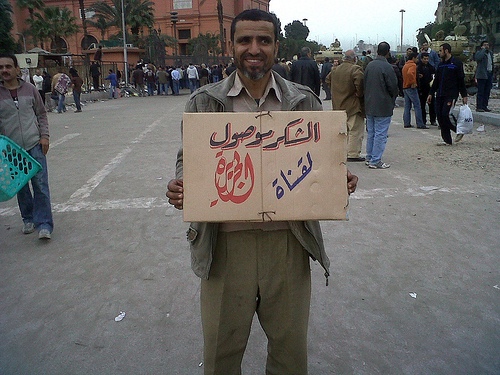public diplomacy
India is an ancient civilization with five thousand years of recorded history. Over these long years Indians have perfected many cultural attributes that may be appealing to the rest of the world - what Joseph Nye likes to call 'soft power’. Some good examples of Indian soft power are Yoga, Bollywood, Ayurveda and the great Indian cuisine (including curry and chicken tikka).
On numerous levels, the United States continues to fall farther behind China in public diplomacy. This is yet another indication that for all its protestations about its commitment to reach out to foreign publics, the U.S. government is unwilling to commit the resources needed to do so effectively.
WASHINGTON – Use of the Internet and social networks was a significant factor in Egypt during the past month, even when the Egyptian government tried to block online access, according to a survey of Cairo and Alexandria residents released this morning by the U.S. Broadcasting Board of Governors.
Co-author: Martin Wahlisch
Three Years into Kosovo’s Independence: Further recognitions will be crucial for the country’s development
If the events in Egypt taught us anything over the past few weeks it is that notions of freedom and fear run in parallel. I was struck as many of you might have been by the myriad images and poignant stories pouring out of Egypt showing Egyptians by the thousands demanding their freedom and rallying for global support. It reminded me of why I have such an enduring appreciation and admiration for Egyptians as a people. They are deeply proud of their heritage and culture and this is infused in every aspect of daily life.
Let me begin by describing a scenario to you.
It’s Wednesday night in Costa Rica, about 8.30pm, and people in Costa Rica, as people do in most countries, are watching prime-time television. On this particular night, Costa Rica takes on their neighbors Venezuela in a soccer match and, due to the mass popularity of soccer in Costa Rica, it is drawing a large audience. Costa Rica scores, and after endless replays and analysis of a truly average goal, the action cuts to a "and here’s the reaction in China" sequence of pictures.

First, let’s be clear that this was the Egyptian Revolution, not the “Facebook Revolution” or the “Twitter Revolution.” Events of the past few weeks belong wholly to spirit of the Egyptian people, not technology. And although it was built on democratic aspirations, this was not a revolution that drew any inspiration from the United States.







